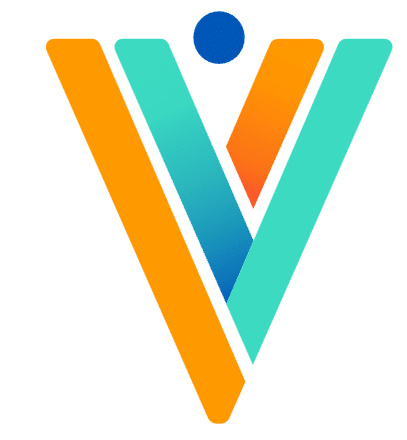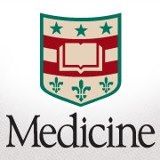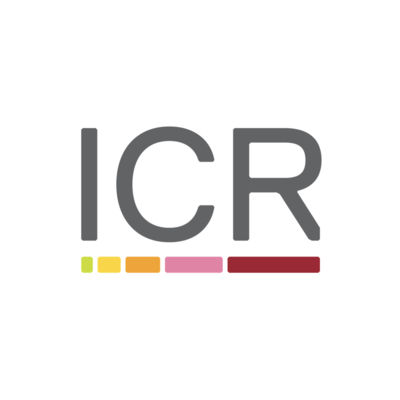预约演示
更新于:2025-12-08

Verastem, Inc.
更新于:2025-12-08
概览
标签
肿瘤
呼吸系统疾病
内分泌与代谢疾病
小分子化药
疾病领域得分
一眼洞穿机构专注的疾病领域
暂无数据
技术平台
公司药物应用最多的技术
暂无数据
靶点
公司最常开发的靶点
暂无数据
| 排名前五的药物类型 | 数量 |
|---|---|
| 小分子化药 | 7 |
关联
7
项与 Verastem, Inc. 相关的药物作用机制 BRAF抑制剂 [+3] |
在研机构 |
原研机构 |
在研适应症 |
最高研发阶段批准上市 |
首次获批国家/地区 美国 |
首次获批日期2025-05-08 |
作用机制 KRAS G12C抑制剂 |
在研机构 |
原研机构 |
在研适应症 |
最高研发阶段批准上市 |
首次获批国家/地区 美国 |
首次获批日期2021-05-28 |
作用机制 KRAS G12D抑制剂 |
在研机构 |
原研机构 |
非在研适应症- |
最高研发阶段临床3期 |
首次获批国家/地区- |
首次获批日期- |
45
项与 Verastem, Inc. 相关的临床试验NCT07126158
Phase II Study of Stereotactic Body Radiotherapy Plus FAK and RAF/MEK Inhibition in Advanced Pancreatic Adenocarcinoma
Advanced pancreatic cancer patients receiving treatment of adaptive stereotactic body radiotherapy (SBRT) with concurrent and adjuvant defactinib plus avutometinib will have increased progression-free survival (PFS) compared to historical PFS rates for patients receiving adaptive SBRT alone.
开始日期2025-11-30 |
申办/合作机构 |
NCT07020221
A Phase 1/2a, Open-label Study of VS-7375, a KRAS G12D (ON/OFF) Inhibitor, as Monotherapy and in Combination, in Patients With Advanced KRAS G12D-Mutated Solid Tumors
This study will assess the safety and efficacy of VS-7375 alone and in combination in patients with advanced solid tumors harboring a KRAS G12D-mutation.
开始日期2025-06-24 |
申办/合作机构 |
NCT06630260
A Phase 1/2 Trial of the Doublet Combination of Avutometinib and Defactinib and As a Triplet in Combination with Temozolomide in Patients with High Grade Malignant Brain Tumours Within the 5G Platform
The purpose of this clinical trial is to evaluate the safety and tolerability of avutometinib and defactinib and to determine the preliminary antitumour activity of avutometinib and defactinib administered at the recommended Phase 2 dose (RP2D). In the Phase 1b of this study parallel biomarker defined arms will be opened, initially in the relapsed GMB setting, enrolling 12 patients onto each arm. These patients will be treated with avutometinib and defactinib double therapy. Avutometinib will be administered orally at 3.2mg twice a week (e.g., on Monday / Thursday or Tuesday / Friday) with or without a meal. The total weekly dose of avutometinib is 6.4mg. Defactinib will be administered orally, at 200mg, twice a day within 30 min after a meal. The total daily dose of defactinib is 400mg.
Once a treatment in any biomarker arm has met the "GO" decision (≥3 successes/12 patients) for relapsed GBM in Phase 1b, that arm can progress to Phase 2. The primary objective of Phase 2 is to determine the antitumour activity of investigational agents administered at the RP2D in patients with molecularly defined malignant brain tumours.
Once a treatment in any biomarker arm has met the "GO" decision (≥3 successes/12 patients) for relapsed GBM in Phase 1b, that arm can progress to Phase 2. The primary objective of Phase 2 is to determine the antitumour activity of investigational agents administered at the RP2D in patients with molecularly defined malignant brain tumours.
开始日期2024-11-15 |
100 项与 Verastem, Inc. 相关的临床结果
登录后查看更多信息
0 项与 Verastem, Inc. 相关的专利(医药)
登录后查看更多信息
13
项与 Verastem, Inc. 相关的文献(医药)2020-08-01·Molecular cancer therapeutics2区 · 医学
Combinatorial Inhibition of Focal Adhesion Kinase and BCL-2 Enhances Antileukemia Activity of Venetoclax in Acute Myeloid Leukemia
2区 · 医学
Article
作者: Ruvolo, Vivian ; Mu, Hong ; Carter, Bing Z. ; Andreeff, Michael ; Weaver, David T. ; Wang, Xiangmeng ; Mak, Po Yee ; Pachter, Jonathan A. ; Visweswaran, Ravikumar ; Xu, Bing ; Rao, Arvind ; Tao, Wenjing
Abstract:
Focal adhesion kinase (FAK) promotes cancer cell growth and metastasis. We previously reported that FAK inhibition by the selective inhibitor VS-4718 exerted antileukemia activities in acute myeloid leukemia (AML). The mechanisms involved, and whether VS-4718 potentiates efficacy of other therapeutic agents, have not been investigated. Resistance to apoptosis inducted by the BCL-2 inhibitor ABT-199 (venetoclax) in AML is mediated by preexisting and ABT-199–induced overexpression of MCL-1 and BCL-XL. We observed that VS-4718 or silencing FAK with siRNA decreased MCL-1 and BCL-XL levels. Importantly, VS-4718 antagonized ABT-199–induced MCL-1 and BCL-XL. VS-4718 markedly synergized with ABT-199 to induce apoptosis in AML cells, including primary AML CD34+ cells and AML cells overexpressing MCL-1 or BCL-XL. In a patient-derived xenograft (PDX) model derived from a patient sample with NPM1/FLT3-ITD/TET2/DNMT3A/WT1 mutations and complex karyotype, VS-4718 statistically significantly reduced leukemia tissue infiltration and extended survival (72 vs. control 36 days, P = 0.0002), and only its combination with ABT-199 effectively decreased systemic leukemia tissue infiltration and circulating blasts, and prolonged survival (65.5 vs. control 36 days, P = 0.0119). Furthermore, the combination decreased NFκB signaling and induced the expression of IFN genes in vivo. The combination also markedly extended survival of a second PDX model developed from an aggressive, TP53-mutated complex karyotype AML sample. The data suggest that the combined inhibition of FAK and BCL-2 enhances antileukemia activity in AML at least in part by suppressing MCL-1 and BCL-XL and that this combination may be effective in AML with TP53 and other mutations, and thus benefit patients with high-risk AML.
2020-01-01·Lung cancer (Amsterdam, Netherlands)2区 · 医学
Phase 2 study of the focal adhesion kinase inhibitor defactinib (VS-6063) in previously treated advanced KRAS mutant non-small cell lung cancer
2区 · 医学
Article
作者: Li, Marilyn ; Burns, Timothy F ; Ramalingam, Suresh S ; Morgensztern, Daniel ; Gerber, David E ; Weaver, David T ; Vaikus, Louis ; Spigel, David R ; Zhang, Song ; Keegan, Mitchell ; Jeong, Woondong ; Scaglioni, Pier P ; Horobin, Joanna C ; Cetnar, Jeremey ; Kelly, Ronan J ; Camidge, D Ross
OBJECTIVES:
KRAS mutations, which occur in approximately 25% of lung adenocarcinoma cases, represent a major unmet clinical need in thoracic oncology. Preclinical studies have demonstrated that KRAS mutant NSCLC cell lines and xenografts with additional alterations in either TP53 or CDKN2A (INK4A/ARF) loci are sensitive to focal adhesion kinase (FAK) inhibition. Defactinib (VS-6063) is a selective oral inhibitor of FAK.
MATERIALS AND METHODS:
Patients with previously treated advanced KRAS mutant NSCLC were prospectively assigned to one of four molecularly defined cohorts based on the presence or absence of TP53 or CDKN2A alterations and received treatment with defactinib 400 mg orally BID until disease progression or intolerable toxicity. The primary endpoint was progression-free survival (PFS) at 12 weeks.
RESULTS:
Fifty-five patients were enrolled. Mean age was 62 years; 51% were female. The median number of prior lines of therapy was 4 (range 1-8). Fifteen (28%) patients met the 12-week PFS endpoint, with one patient achieving a partial response. Median PFS was 45 days. Clinical efficacy did not correlate with TP53 or CDKN2A status. The most common adverse events were fatigue, gastrointestinal, and increased bilirubin, and were generally grade 1 or 2 in severity.
CONCLUSION:
In heavily pretreated patients with KRAS mutant NSCLC, defactinib monotherapy demonstrated modest clinical activity. Efficacy was not associated with TP53 and CDKN2A status. Defactinib was generally well tolerated.
2019-07-01·Haematologica
PYK2/FAK inhibitors reverse hypoxia-induced drug resistance in multiple myeloma
Letter
作者: Azab, Abdel Kareem ; Azab, Feda ; Vij, Ravi ; Padval, Mahesh V ; Pachter, Jonathan A ; Weaver, David T ; Buggio, Maurizio ; de la Puente, Pilar ; Fiala, Mark ; Muz, Barbara
A review on role of PYK2/FAK inhibition on the proliferation and hypoxia-induced drug resistance in multiple myeloma (MM).It focus on PYK2/FAK inhibitors that reverse hypoxia-induced drug resistance in multiple myeloma by treating MM cells with increasing doses of dual PYK2/FAK inhibitors (VS-4718 and VS-6063).It found that MM cells had similar responses in both hypoxia and normoxia, with a half maximal inhibitory concentration (IC50) of 2.5-5μM for the two inhibitors in the two cell lines.In conclusion, it found that single-agent treatment with the PYK2/FAK inhibitors, VS-4718 and VS-6063 (defactinib), decreased proliferation and increased apoptosis of MM cells.
263
项与 Verastem, Inc. 相关的新闻(医药)2025-12-06
·医药地理
近日,劲方医药宣布其自主研发的口服KRAS G12D(ON/OFF)抑制剂GFH375治疗经治KRAS G12D突变型转移性胰腺癌患者的注册性III期试验(GFH375X1301)已在北京大学肿瘤医院启动。根据新闻稿,目前GFH375开发进度位于全球口服KRAS G12D抑制剂第一梯队,多项GFH375/VS-7375单药和联合疗法正在中国及海外进行临床探索,包括GFH375联合化疗(白蛋白紫杉醇和吉西他滨,AG)一线治疗晚期胰腺导管腺癌(PDAC)。此外,GFH375/VS-7375已获得FDA快速通道资格认定,治疗局部晚期及转移性KRAS G12D突变型PDAC患者。
这项多中心、开放标签、随机对照的III期试验(GFH375X1301)将在约40家中心开展,计划入组约320例既往接受至少一种标准系统性治疗的转移性胰腺癌患者。
GFH375为口服高活性、高选择性小分子KRAS G12D(ON/OFF)抑制剂,通过非共价形式结合KRAS G12D蛋白,抑制其与下游效应蛋白结合,从而在细胞中破坏KRAS G12D对下游通路的持续活化,最终高效抑制肿瘤细胞增殖。临床前研究已显示GFH375单药对肿瘤生长的抑制效应随用药剂量和周期增长而提升,且在激酶选择性和安全性靶点测试中显示低脱靶风险。2023年8月,劲方医药与纳斯达克上市公司Verastem Oncology对劲方开发的三款产品达成授权及早期合作开发协议。2025年1月,Verastem宣布对GFH375/VS-7375行使选择权,获得GFH375在大中华区之外的开发和商业化权利。
END
如需获取更多数据洞察信息或公众号内容合作,请联系医药地理小助手微信号:pharmadl001
获取更多创新药情报
请关注【医药地理数据库】
临床3期快速通道临床1期
2025-12-05
药械追踪
No.1 / BMS Breyanzi在美获批成为首个且唯一用于治疗MZL的CAR-T疗法
2025年12月4日,百时美施贵宝(BMS,纽约证券交易所代码:BMY)宣布,其靶向CD19的CAR-T疗法Breyanzi(lisocabtagene maraleucel;liso-cel)新适应证已获美国食品药品监督管理局(FDA)批准,用于治疗既往接受过至少两线全身治疗的复发或难治性(R/R)边缘区淋巴瘤(MZL)成年患者。这是首个且唯一获批用于该患者群体的CAR-T细胞疗法。
Breyanzi此次获批是基于TRANSCEND FL研究中MZL队列的试验结果。TRANSCEND FL是一项开放标签、多中心、多队列、单臂研究。根据美国处方信息(USPI),在三线及以上接受Breyanzi治疗且纳入主要疗效分析的患者中(n = 66),总缓解率(ORR)为95.5%(95% CI:87.3 - 99.1),完全缓解(CR)率为62.1%(95% CI:49.3 - 73.8)。中位缓解持续时间(mDOR)尚未达到(95%置信区间:25.59 - 未达到),90.1%的缓解患者在24个月时仍保持缓解状态。
Breyanzi在复发或难治性MZL患者中的安全性特征与在其他适应证临床试验中的既往报告一致。其重要安全信息包括有关细胞因子释放综合征(CRS)、神经毒性以及继发性血液系统恶性肿瘤的黑框警告。
->点击文末阅读原文,解锁完整双语新闻
No.2 / 全球首个!劲方医药启动GFH375治疗胰腺癌Ⅲ期临床
2025年12月5日,劲方医药(2595.HK)宣布其自主研发的口服KRAS G12D (ON/OFF)抑制剂GFH375治疗经治KRAS G12D突变型转移性胰腺癌患者的注册性Ⅲ期试验(GFH375X1301)已在北京大学肿瘤医院启动。
这是全球首个口服KRAS G12D抑制剂治疗胰腺癌的注册性临床研究。这项多中心、开放标签、随机对照的Ⅲ期试验(GFH375X1301)将在约40家中心开展,计划入组约320例既往接受至少一种标准系统性治疗的转移性胰腺癌患者。
GFH375为口服高活性、高选择性小分子KRAS G12D(ON/OFF)抑制剂,通过非共价形式结合KRAS G12D蛋白,抑制其与下游效应蛋白结合,从而在细胞中破坏KRAS G12D对下游通路的持续活化,最终高效抑制肿瘤细胞增殖。临床前研究已显示GFH375单药对肿瘤生长的抑制效应随用药剂量和周期增长而提升,且在激酶选择性和安全性靶点测试中显示低脱靶风险。 2023年8月,劲方医药与Verastem Oncology(Nasdaq:VSTM)对劲方开发的三款产品达成授权及早期合作开发协议。2025年1月,Verastem宣布对GFH375/VS-7375行使选择权,获得GFH375在大中华区之外的开发和商业化权利。
->点击文末阅读原文,解锁完整双语新闻
企业动态
No.1 /赛诺菲完成对Vicebio的收购,囊获呼吸道病毒联合疫苗
2025年12月4日,赛诺菲宣布已完成对Vicebio的收购。此前赛诺菲在2025年7月首次宣布将以16亿美元收购Vicebio。
此次收购为赛诺菲带来了一款针对呼吸道合胞病毒(RSV)和人偏肺病毒(HMPV)两种呼吸道病毒的联合疫苗候选产品,并借助Vicebio的“分子钳”技术,拓展了其在疫苗设计与开发方面的能力。所收购的这款疫苗候选产品完善了赛诺菲在呼吸道疫苗领域的布局,使赛诺菲的产品管线增加了一款非mRNA疫苗,有望为RSV和HMPV的诊疗提供更多选择。
->点击文末阅读原文,解锁完整双语新闻
No.2 / 科伦博泰合作Crescent Biopharma,开发ITGB6 ADC及PD-1×VEGF双抗
2025年12月5日,四川科伦博泰生物医药股份有限公司(科伦博泰,6990.HK)宣布与Crescent Biopharma建立战略合作伙伴关系,共同开发和商业化肿瘤治疗手段(包括新型联用疗法)。
此次合作涉及科伦博泰一款靶向整合素β6(ITGB6)并以拓扑异构酶抑制剂为载荷的抗体偶联药物(ADC)SKB105,以及Crescent一款PD-1×VEGF双特异性抗体CR-001。这两款候选药物均正在开发用于治疗实体瘤,预计于2026年第一季度开展1/2期单药治疗临床试验。
根据合作条款,科伦博泰授予Crescent在美国、欧洲及所有其他大中华地区(包括中国大陆及港澳台)以外市场研究、开发、生产和商业化SKB105的独家权利。Crescent则授予科伦博泰在大中华地区研究、开发、生产和商业化CR-001的独家权利。此次合作包括开发两款候选药物的单药疗法,以及评估CR-001与SKB105的联用疗法。科伦博泰及Crescent均有权独立开发CR-001的其他联用方案,包括CR-001与各自专有的ADC管线资产联用。
基于此次合作,科伦博泰将向Crescent收取8000万美元的首付款,并有资格收取高达12.5亿美元的里程碑付款,以及基于SKB105净销售额的中个位数至低双位数百分比的分级特许权使用费。若Crescent近期发生控制权变更或与第三方签订分许可协议,科伦博泰亦有资格向Crescent收取额外款项。Crescent将向科伦博泰收取2000万美元的首付款,并有资格收取高达3000万美元的里程碑付款,以及基于CR-001净销售额的低至中个位数百分比的分级特许权使用费。
->点击文末阅读原文,解锁完整双语新闻
全球医疗情报领导者
解锁隐藏在数据中的商业潜力
关于 G B I
”
自从2002年成立以来,GBI始终以技术为驱动,为药企、器械及行业相关服务商提供贯穿生命周期的全球药品市场竞争数据、全球行业资讯、HCPs洞察、全国医疗器械数据等商业信息与洞察,助力企业在进行战略布局和决策时,脱颖而出。历经20余年的深耕细作GBI已成为95%以上跨国药企、国内头部药企、咨询与投资机构等医疗圈灯塔用户值得信赖的长期合作伙伴。
联系我们
投稿 | 发稿 | 媒体合作
▶ olivia.xu@generalbiologic.com
数据库 | 咨询服务 | 资讯追踪
▶ 点击左下“阅读原文”完成表单填写
点击阅读原文,解锁完整双语新闻
2025-12-05
劲方医药(2595.HK)宣布其自主研发的口服KRAS G12D (ON/OFF)抑制剂GFH375治疗经治KRAS G12D突变型转移性胰腺癌患者的注册性III期试验(GFH375X1301)已在北京大学肿瘤医院启动。目前GFH375开发进度位于全球口服KRAS G12D抑制剂第一梯队,多项GFH375/VS-7375单药和联合疗法正在中国及海外进行临床探索,包括GFH375联合化疗(白蛋白紫杉醇和吉西他滨,AG)一线治疗晚期胰腺导管腺癌(PDAC);此外,GFH375/VS-7375已获得FDA快速通道资格认定,治疗局部晚期及转移性KRAS G12D突变型PDAC患者。
这项多中心、开放标签、随机对照的III期试验(GFH375X1301)将在约40家中心开展,计划入组约320例既往接受至少一种标准系统性治疗的转移性胰腺癌患者。沙利文数据显示2037年全球胰腺癌新发病例将超过77万人,胰腺癌恶性程度高、预后极差,5年生存率不足10%;目前胰腺癌治疗仍以化疗药物为主,二线至三线客观缓解率(ORR)仅为10-20%,三线及以上治疗尚无标准治疗方案。科研文献显示近40%胰腺癌患者存在KRAS G12D突变,而全球尚无相关靶向药上市;KRAS G12D突变是晚期PDAC应答率及总生存期不佳的独立预后标志物,且KRAS G12D突变在调节性T细胞转化过程中发挥关键作用,可促进形成免疫抑制性肿瘤微环境、并导致患者对免疫检查点抑制剂应答不佳。
劲方医药首席医学官汪裕博士:
“这是全球首个口服RAS抑制剂治疗胰腺癌的注册性临床研究,这一重要里程碑体现了劲方临床团队的临床研发和执行能力、以及公司深耕于RAS疗法矩阵的一体化新药开发实力。GFH375在去年进入临床试验,今年就已获得优秀的单药I/II期研究数据,并在近期进入多项单药、联合疗法试验,我们期待该产品在这项注册性研究(GFH375X1301)中取得积极结果、早日造福患者。我们也期待以GFH375为代表的劲方RAS靶向药物在未来实现更多突破,并与公司的恶病质双抗疗法形成靶向胰腺癌的协同性治疗矩阵。”
关于GFH375/VS-7375
GFH375为口服高活性、高选择性小分子KRAS G12D(ON/OFF)抑制剂,通过非共价形式结合KRAS G12D蛋白,抑制其与下游效应蛋白结合,从而在细胞中破坏KRAS G12D对下游通路的持续活化,最终高效抑制肿瘤细胞增殖。临床前研究已显示GFH375单药对肿瘤生长的抑制效应随用药剂量和周期增长而提升,且在激酶选择性和安全性靶点测试中显示低脱靶风险。
2023年8月,劲方医药与纳斯达克上市公司Verastem Oncology(纳斯达克股票代码:VSTM)对劲方开发的三款产品达成授权及早期合作开发协议。2025年1月,Verastem宣布对GFH375/VS-7375行使选择权,获得GFH375在大中华区之外的开发和商业化权利。
关于劲方医药
劲方医药(2595.HK)是一家全球布局的创新药物开发企业,聚焦肿瘤、免疫类疾病领域高度未满足的临床需求,以疾病生物学机理和临床转化医学为核心,构建并发挥自主化、一体化研发体系优势,主攻尚无临床验证的创新靶点与适应症,并拥有全球自主知识产权。自2017年成立以来,劲方医药已建立包含多个自主研发的“全球新”大、小分子项目,多个产品在中国、欧洲、美国进入全球多中心临床试验,包括多项后期或关键性临床研究。
达伯特®(氟泽雷塞)为劲方管线中首个国内上市获批产品,也是国内首个、全球第三个上市的KRAS G12C抑制剂;目前公司已形成RAS靶向疗法的一体化深耕矩阵,包括多靶点、多种分子类型的选择性及泛RAS抑制剂,多个产品开发进度在国内外同靶点赛道处于领先,且研究数据多次登陆国际学术会议突破性研究摘要及口头报告。同时,公司积极拓展其他“全球新”靶向药开发,采用协同机制打造全球首创的多类型双靶点疗法;并结合临床需求与治疗理念的创新,以产品矩阵进军胰腺癌、非小细胞肺癌、恶病质等大适应症市场。
劲方已获得国家级专精特新“小巨人”、国家级高新技术企业称号,并获得上海市专精特新中小企业、上海市跨国公司研发中心、上海市企业技术中心认定。公司近年来不断深化商业合作网络,已与多个境内外上市公司达成战略授权协议、或开展“全球新”临床合作并已取得积极进展。
联系我们
电话:021-68821388
邮箱:pr@genfleet.com; bd@genfleet.com
官网:www.genfleet.com
地址:上海市浦东新区张江路1206号A座
邮编:201203
前瞻性声明
本新闻稿包含的特定信息可能包含或可能构成非历史事实的前瞻性陈述。前瞻性陈述可通过使用如下具有前瞻性的词汇辨识,例如“预计”、“相信”、“计划”、“预估”、“期望”、“将”、“可能”、“应”和其他具有类似含义的词汇。
前瞻性陈述表达了公司对未来的信念、计划、预估以及期望,是基于公司管理层目前对于公司的经营情况和市场变化情况(该等变化情况不受其控制)所持的信念、计划、预估以及期望而作出。受市场、政策、研发等不确定性因素影响,实际结果可能与该等前瞻性陈述有较大差异。
在前述不确定性的前提下,公司不保证前瞻性陈述的准确性、完整性或可实现性,并提请您注意不应单独依赖于该等前瞻性陈述,公司及其任何董事、管理人员、雇员、股东、代理人、关联方、顾问或代表均不因使用相关文稿而对您或其他人士承担任何责任。请您审慎评估,并参考公司正式披露文件作出决策。
100 项与 Verastem, Inc. 相关的药物交易
登录后查看更多信息
100 项与 Verastem, Inc. 相关的转化医学
登录后查看更多信息
组织架构
使用我们的机构树数据加速您的研究。
登录
或

管线布局
2026年02月21日管线快照
管线布局中药物为当前组织机构及其子机构作为药物机构进行统计,早期临床1期并入临床1期,临床1/2期并入临床2期,临床2/3期并入临床3期
临床前
2
4
临床2期
批准上市
1
4
其他
登录后查看更多信息
当前项目
| 药物(靶点) | 适应症 | 全球最高研发状态 |
|---|---|---|
Avutometinib/Defactinib ( BRAF x CRAF x FAK x MEK ) | 卵巢浆液性肿瘤 更多 | 临床3期 |
Avutometinib ( BRAF x CRAF x MEK ) | 卵巢浆液性肿瘤 更多 | 临床2期 |
索托拉西布 ( KRAS G12C ) | KRAS G12C突变非小细胞肺癌 更多 | 临床1/2期 |
GFH-375 ( KRAS G12D ) | 非小细胞肺癌 更多 | 临床1/2期 |
VS-6062 ( FAK ) | 非小细胞肺癌 更多 | 临床前 |
登录后查看更多信息
药物交易
使用我们的药物交易数据加速您的研究。
登录
或

转化医学
使用我们的转化医学数据加速您的研究。
登录
或

营收
使用 Synapse 探索超过 36 万个组织的财务状况。
登录
或

科研基金(NIH)
访问超过 200 万项资助和基金信息,以提升您的研究之旅。
登录
或

投资
深入了解从初创企业到成熟企业的最新公司投资动态。
登录
或

融资
发掘融资趋势以验证和推进您的投资机会。
登录
或

生物医药百科问答
全新生物医药AI Agent 覆盖科研全链路,让突破性发现快人一步
立即开始免费试用!
智慧芽新药情报库是智慧芽专为生命科学人士构建的基于AI的创新药情报平台,助您全方位提升您的研发与决策效率。
立即开始数据试用!
智慧芽新药库数据也通过智慧芽数据服务平台,以API或者数据包形式对外开放,助您更加充分利用智慧芽新药情报信息。
生物序列数据库
生物药研发创新
免费使用
化学结构数据库
小分子化药研发创新
免费使用



